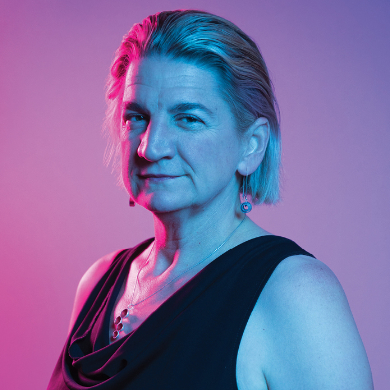
Researcher Profiles

Shannon K. McWeeney, Ph.D.
Oregon Health and Science University
2023 Funding recipient
Explainable Integrative Modeling of Myelodysplastic Syndromes
Artificial Intelligence and Machine Learning in MDS 2023
PROJECT SUMMARY
Myelodysplastic Syndrome (MDS) is a devastating blood cancer diagnosis where most patients do not survive past 5 years. The only treatment with the potential to cure a given MDS patient is allogeneic stem cell transplantation, which is both intensive and not broadly applicable. Thus, standard-of-care focuses on the use of chemotherapy drugs such as azacytidine and decitabine, which often are only initially effective and ultimately lead to disease progression.
The complex features of MDS mean we need additional, novel strategies for the development of effective treatments. To develop these strategies, we need to be able to draw upon and devise new ways of looking at the diverse collection of data that is often available from clinical studies. Our previous work with the BeatAML cohort study has given us deep insight into acute myeloid leukemia, an aggressive blood cancer that often results from the way MDS evolves in patients. Collaborating with the Munich Leukemia Laboratory (MLL) will allow access to one of the largest repositories of MDS patient samples in the world. With this data, we propose to leverage recent advances in the application of artificial intelligence (AI) to identify and experimentally validate new therapeutic targets. A challenging but essential component of our approach is to use ‘Explainable AI’ technologies to ensure that human users can understand and trust the results and outputs of our complex models. However difficult, we recognize that providing transparency into AI decisions is critical for implementation in both the identification of therapeutics as well as clinical decision making. Upon completion of this proposed project, we will share our AI models and methods for use by other researchers and provide the results for others to query and explore through our publicly available Vizome visualization platform.
In total, our approach tests the hypothesis that the use of explainable AI along with a diverse, tailored set of patient data can improve the identification of relevant drug targets and ultimately lead to desperately needed new treatments for MDS patients. Our goal is to ensure that the most promising therapeutic approaches are ultimately proposed as candidates for clinical trials with the goal of improving MDS patient outcomes. A critical component of this application is our proposed multi-disciplinary collaboration, bringing together expertise in computational biology and cancer biology, as well as clinical research and decision making. With respect to the environment, the OHSU Knight Cancer Institute has an outstanding track record of collaboration and leading multi-site clinical trials to ultimately extend the reach of this work to patients across the world. Our partnership with the OHSU Knight Cancer Institute Precision Oncology platform will provide unparalleled access to a world-class pathway to translate this work into novel clinical trial designs.

